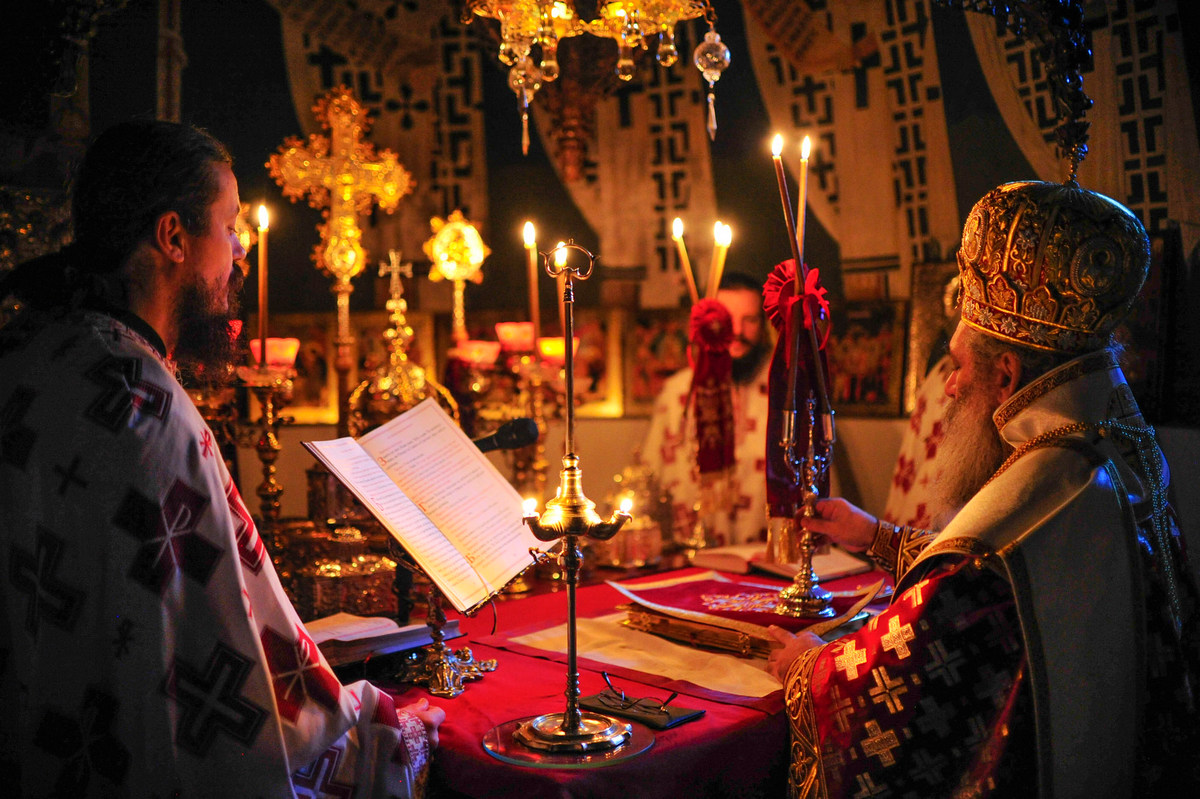In this pre-festive period of sacred anticipation—an anticipation filled with the sighs of generations and centuries—when the nights are at their longest on the calendar, and human hearts thirst for spiritual light, we stand with bowed heads and humbled knees at the threshold of a cosmic mystery: the mystery of the Nativity of Christ. Do we truly understand what it means to welcome the Child of Bethlehem?
The Nativity of Christ is not merely a historical event or a feast inscribed in the Church calendar; it is an eternal act of God’s condescension, of God’s love incarnating itself in our tangible and imperfect world. The Word of God becomes man, not in the palaces of earthly rulers, but in a humble cave. This is, without a doubt, one of the deepest mysteries: the Almighty God appears as a helpless Child. Yet, in this small, vulnerable Child lies all the strength and light that will transform the world.

God became man. He became one of us. He suffers alongside us and shares in our pain. Out of love, He descended to the cave for our sake, first dwelling in the womb of a Woman and then lying in a manger as a swaddled Infant. And what is this cave like? Animals, a manger, filth, stench, and impurity. And yet, He was born there. Therefore, let us not lose hope; let us not fall into the depths of despair. Rather, let us humble ourselves, for in our humility, He will meet us. Let us now first humble ourselves, just as the little Child in Bethlehem did. He will show us mercy from the cave in His humility, and He will bless our humility as well. He loves humility. That is why He was born as a Child in a filthy cave—to reveal to us the ultimate humility. And whoever humbles themselves becomes like God. For, as St. John Climacus says, “Humility is a heavenly whirlwind capable of lifting the soul from the abyss of sin to the heights of heaven. Someone once glimpsed its exalted majesty within their heart, and, overcome with wonder, asked for the name of its parent. And humility, with a serene and peaceful smile, replied: ‘How eager you are to learn the name of my Parent, though He is nameless! I will not reveal it to you until you receive God within yourself.’”
Humility is from the Lord. It is a virtue that flows directly from Him. Thus, we affirm again that whoever humbles themselves becomes like God. But how difficult it is for a person to cultivate humility! Yet, with God’s help, we will strive every day. Let us all gather in the church, as if in the cave of Bethlehem, and before our very eyes, He, the humble One, will appear in great glory.
When God chose the cave and the manger, where do we seek Him today? Do we recognize Him in our neighbor, in the poor, in those who are abandoned and forgotten, lonely, wounded, and sorrowful? Is there room in our hearts to receive Him, or are they filled with noise, worries, and vanity?
The Nativity of Christ is a drama of love. God descends into the night of this world, into the darkness of unbearable existence, into a shadow that is not only physical and external but also dwells within us—in our souls, fears, anxieties, frustrations, isolation, and selfishness. Christ does not come merely to illuminate the world and inaugurate a celebration with lights and gifts; He comes primarily to illuminate the darkness within us. That is the encounter we await—not festive euphoria but transformation, the Divine Light, and the power of love that transforms human nature.

Now, more than ever, we need this transformation. Let us not allow the feast of Christ’s radiant Birth to pass as a mere tradition, as just another non-working day on the calendar. Let us allow Christ to be born—not only in Bethlehem of Judea but also within our hearts.
Every moment of this pre-festive period is an opportunity for a new encounter with Him, for a new birth. Let us dare to open our hearts to this Light, to the East from on high that has visited us, surpassing all fears and distresses, transforming every weakness, and making us into new creations. “Behold, the old has passed away, and all things have become new.”
“Christ is born—glorify Him! Christ is from Heaven—meet Him!”—this is the call of the Church in these days. Let us become brighter, more merciful, freer, and more loving. Christ is coming—let us meet Him with prayerful stillness and joyful longing. May our hearts become an altar for the Bethlehem Child-God, our minds a silence for His Word, and our deeds a hymn of praise and gratitude for His love.
†Bishop Parthenios of Antania, Abbot of the Sacred Bigorski Monastery (Excerpt from a monastic synaxis, 29.01.24)















